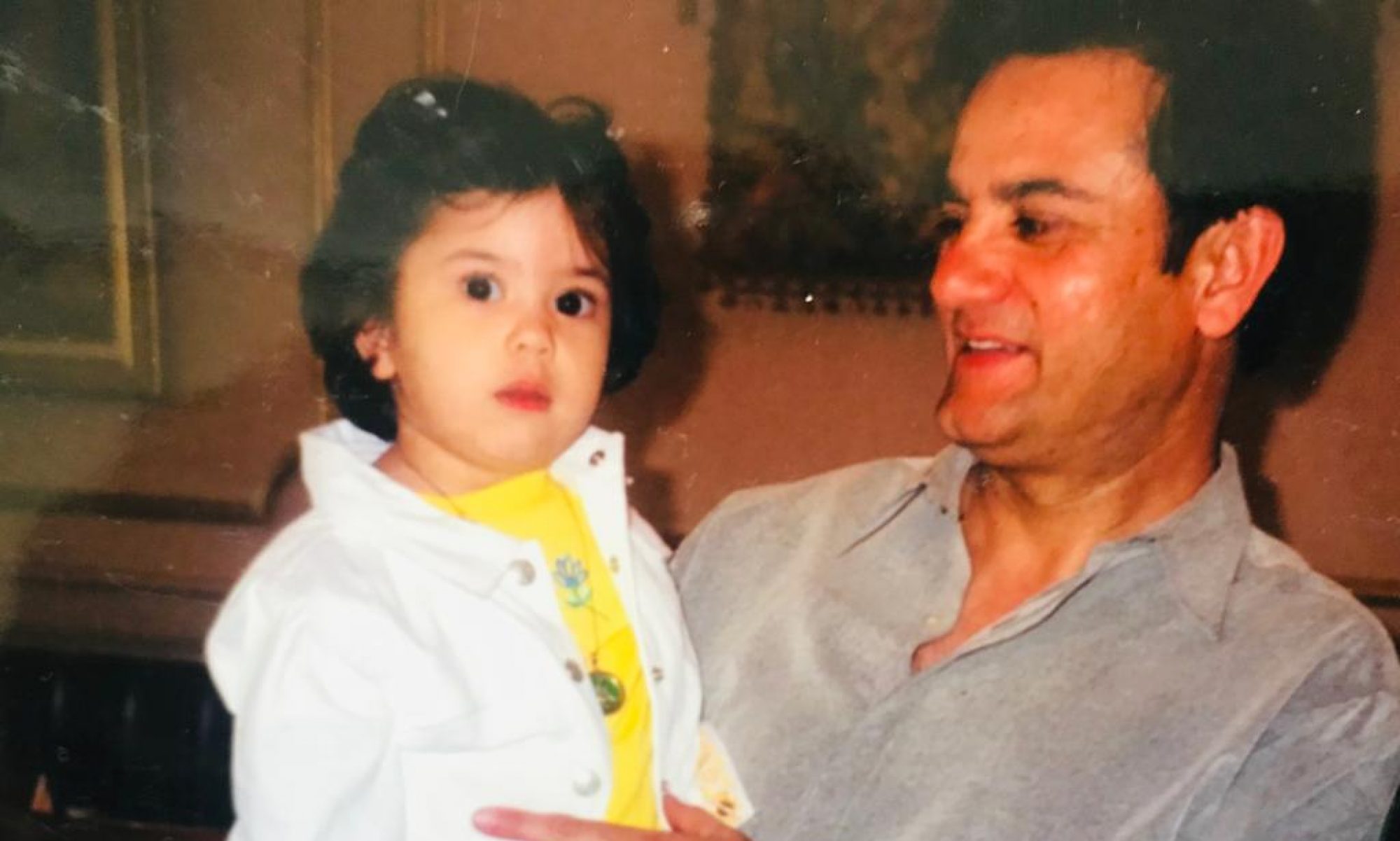As a first generation college student who is also a creative individual, I am faced with constant pressure. I am told I need to be the first to attend college, alongside my sibling, and pursue a career that will provide a stable income. However, there is another layer to this pressure of being a first generation college student. I am also entering into the career field as a creative. Since I was a kid I loved art, fashion, pop-culture, music, all things creative. Further, I had to figure out the right way to communicate this creative passion of mine to my Iranian parents. The answer I received was “Do what makes you happy Nadia”. Now the pressure of being the first to attend college and pursue a career in creativity was about my happiness. Is doing what makes me happy going to be enough to leave a legacy behind for my family?
In this personal story I want to expand on the pressure that goes along with being a first generation college student as well as entering into the creative field. First generation college students are faced with immense pressure, but when you are adding in a career in the creative field, that is another layer of challenges. Creatives may have, as a professional group, the most challenging pathways because, in a capitalistic society and economy, the arts, writing, performance across ballet to music to vocals, isn’t as valued [unless you hit it big] as, say, a finance job on Wall Street, a career in law, etc.
The hurdles first generation students face are constant. In addition to being the first to attend college, there is the battle of the socioeconomic ladder. It is difficult to ascend from the ladder if at the bottom. A first generation college student guide published by U.S. News, stated, “First generation students can sometimes feel socially isolated because of the elitism at many institutions or they (may) have a hard time balancing their academic tasks with the need to work or help support their families,” the article also mentions, “Pressure for first-generation students is not limited to doing well academically. Experts note that there is also the pressure of being the first in the family to attend school, serving as a role model for younger siblings and in some cases continuing to help support the family.”
I grew up in a small town called Coto de Caza, located in Orange County, California. Living in a Persian household with my mom, dad, and my older brother. Growing up in this city as a first generation Persian was interesting to say the least. I was surrounded by families that were not similar to mine. However, my Persian parents did not hold me back from anything. My brother and I experienced almost everything any kid would while growing up in Coto de Caza. They gave my brother and I the opportunity to flourish in the world with no constraint. Further, the ability to experience so much and to just spread my wings and fly was the pressure I experienced growing up. That is what I attempted to do.
My biggest fear growing up was the unknown. The unknown is probably the scariest thing I have ever thought about. However, there is something much worse than the unknown and that is legacy. An article published by The Sunflower stated, “A legacy student is someone whose parents attended the same university.” Legacy is common for those following older family generations. For me, I am starting a legacy for my family being a first generation college student. I am representing and honoring my family and the sacrifices my mother and father made to allow me to have these opportunities in the world.
My mother was born in Hannover, Germany and raised in Iran. The youngest memory she remembers was when her uncle bought her a bird for her. It was yellow. And another that was blue. She loved those two birds and her uncle.
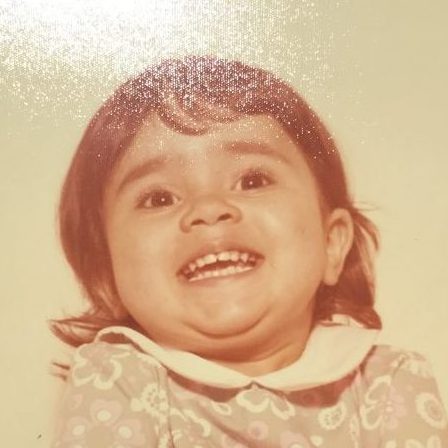
“It was a good moment in time,” my mother said.
Reading books was the number one rule to follow in my mother’s childhood household. Everyday my mother had to read no matter what the circumstances were. But these rules did not make her revolt in any way, in fact, she loved reading books because of the relaxation it brought to her mind.
“I would listen to music on tapes that were brought from my brother’s friend like the song Lady In Red was one that I listened to on my tape recorder,” Mom said. But this wasn’t the escape for my mom. The escape was getting away. Simply being out with her friends to get out and adventure. “Escape was sitting outside on the sidewalk and just talking,” she said, “I didn’t have a phone like you guys, you forgot how to talk to each other and adventure away from technology.”
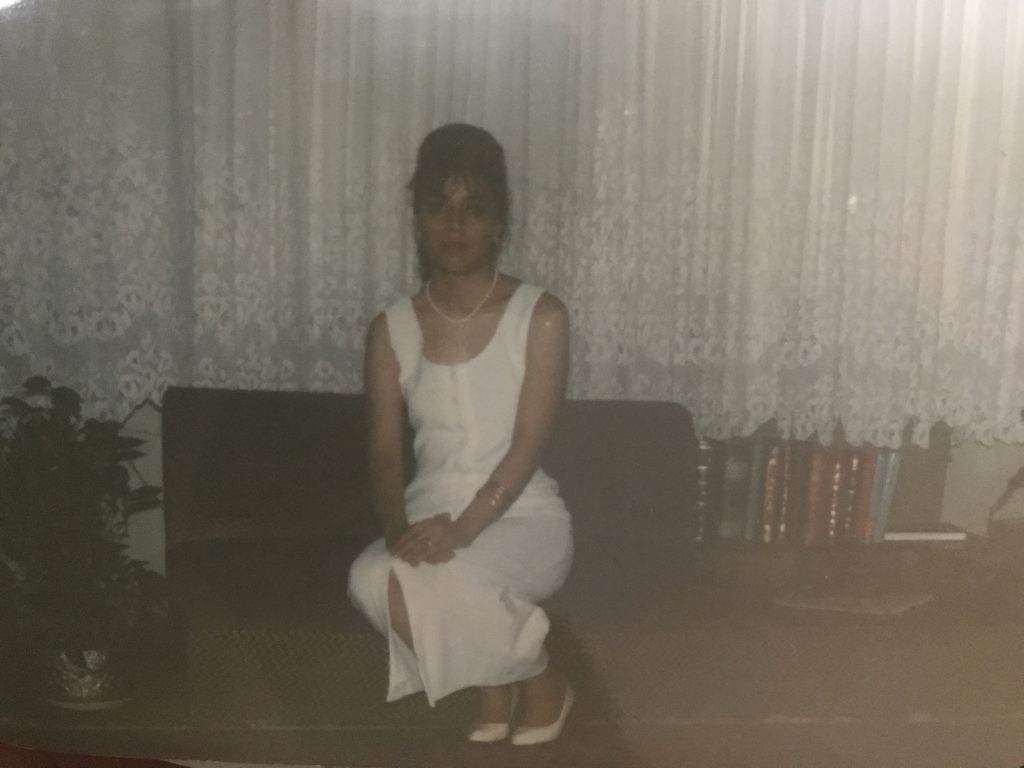
Technology was different at that time my mother grew up in. With digital now, there is a constant form of comparison but comparison did not exist in my mom’s time. She obviously had posters, magazines, newspapers, that all had images of other people. But these images and statements never brought negative thoughts more so these images opened up her mind to traveling and experiencing the world.
My mom wanted to be a designer. That was the dream. Her parents did not care about what her and her youngest brother wanted to pursue as a career. Only the oldest brother was told what to do- become a doctor. My mom’s parents only cared about who she was friends with, her hobbies, and her education. My mom’s childhood household rules: sit down and study and don’t go out with your friends. These rules were broken by my mother. She would paint her nails, get dressed up, and explore life with her friends (all of which was restricted with the Islamic Regime). My mom did not have a typical highschool experience. My mom said, “My high school was in a War, so there was not just college pressure or career pressure. Everything was happening all at once. There is always pressure. No matter how old you are, people will always have pressure.”
My mom’s parents were rule makers but never became strict with career rules. “I wish they were more strict because they let a lot of things go by without attention and that left me lost,” she went on to say, “A lot of my friends at the time had parents that put them in classes, activities, and told them what job to have but mine did not.” My mother was not given the opportunity to learn outside of just school. She said, “That is why when raising you and Navid I wanted to put the both of you in everything I saw available. So you were never restricted. This allowed you both to open up your mind to new things and new possibilities.”
My mom truly sacrificed her life for my brother and I. Moving to America in her early 20s, not speaking any English, no money, and without family. She was starting a new life with my father.
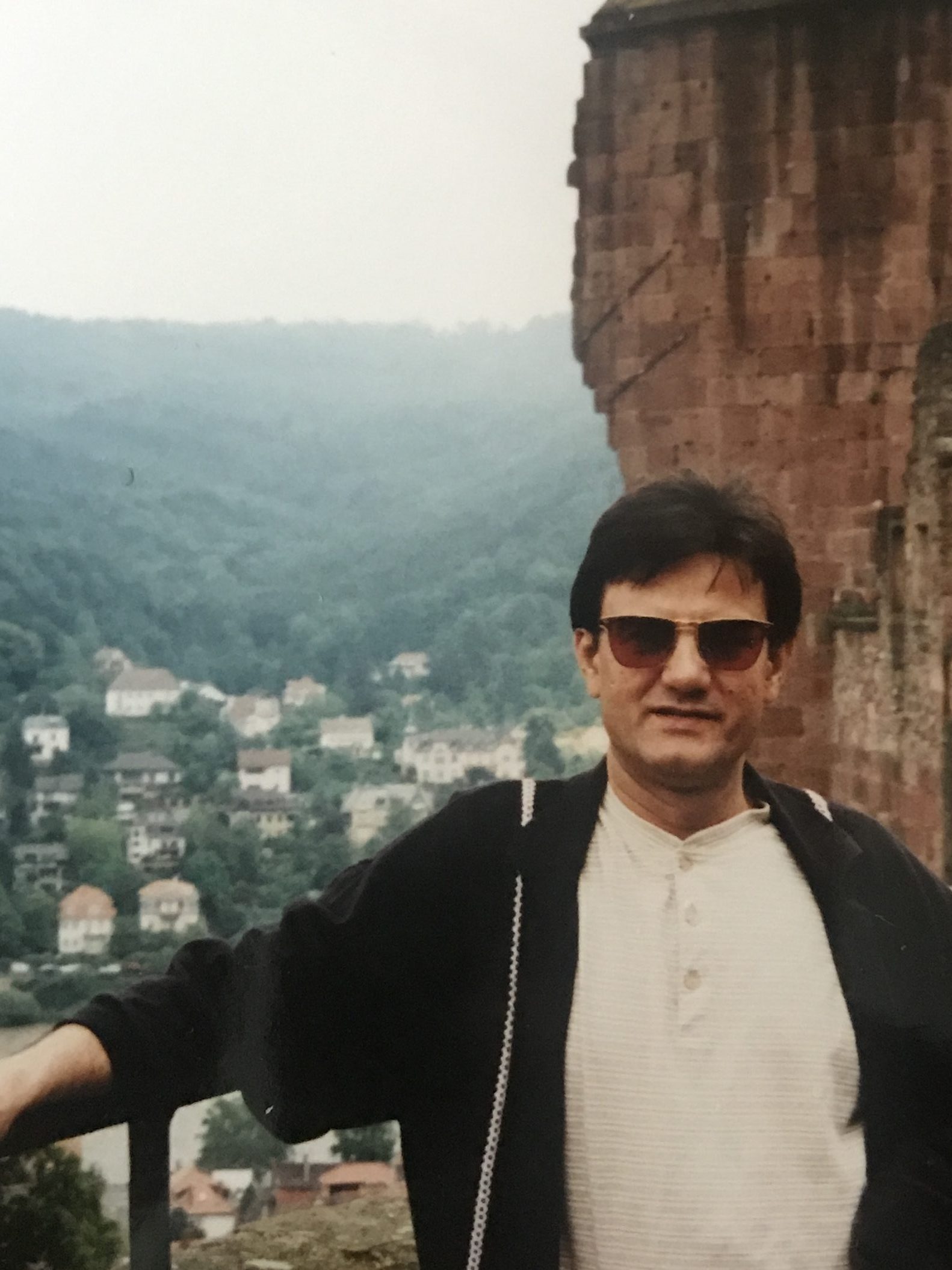
My father moved out at 18 years old. He left his family in Iran and traveled to numerous locations in order to find stability on his own. He hustled and had to find any job he could to live out the American Dream. Additionally, my dad worked endlessly to make sure my brother and I had opportunities. Being a first born son who is also first generation was more difficult for my brother. He will always have to live up to the expectations my father has. But our parents treated my brother and I equally and gave us both the opportunity to pursue our dreams.
Dreams did not exist for my parents. They did not do what they loved, they did things for the people they love. If my mom and dad pursued a career in the creative field at the time, they both would not have had the financial stability to start a family in America. Further, they did not have a choice other than hustle to be financially stable. In addition, being creative was not a career choice, especially for my father. However, times have changed. Creatives today have much more opportunity in the world to pursue a stable career.
I spoke to a friend of mine who is also attending college as a first generation student. Mary Perez is a student at the University of Southern California studying architecture and entrepreneurship. Perez is a first generation who is very much creative. When having a conversation, Perez stated “Architecture is the most reassuring way to be creative because it’s the most professional. But a lot of architecture now has become more commercial. In architecture creatives aren’t given as much liberty. As an architect you’re not being a designer anymore,” she goes on to say, “I picked architecture because I knew there was a potential of getting paid more. It was the best compromise for me and my parents. I was actually going to go to UCLA and work in the film industry but I knew there was less of a chance to get a job.” Mary comes from a Latino family that similarly wants Mary to have one thing: Happiness. “The biggest happiness I was going to get was whatever I would return to my parents,” said Perez. Further, we both mentioned that our parents wanted us to pursue a career that brought us happiness.
“Our parents probably wouldn’t have made enough money if they were creatives. It’s crazy how they worked so damn hard for us to do what we wanted to do,” said Perez.
The next creative I spoke to is a photographer based in New York City. I had the chance to connect with Henrock Francios via Instagram and spoke to him about what it is like to be in the creative field.
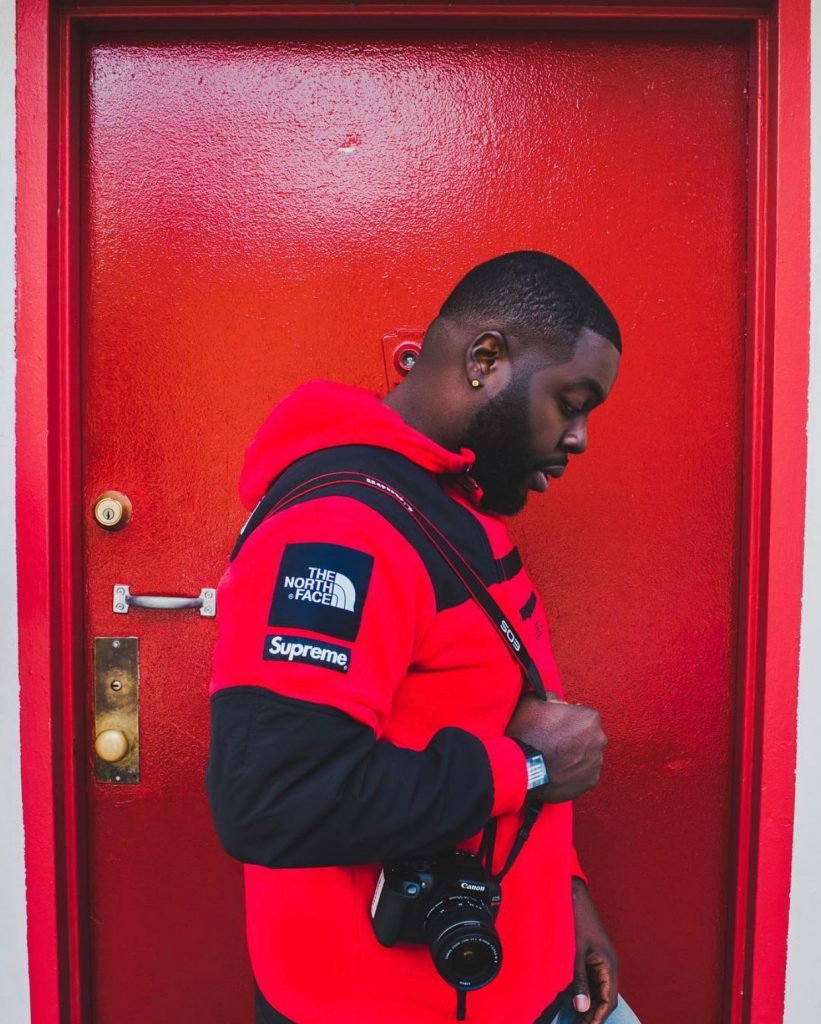
Henrock Francois 
Francois stated, “I’m a product of immigrants, so creatives pshhh. Being a product of immigrant parents and being creative. It’s tough. They don’t understand. They don’t understand social media. When I would get stuff sent to their house they would be confused about getting paid through social media. My parents always thought of me being someone in a suit and tie working in a cubicle. But I think as they saw me grow in that regard they finally saw that I was chasing something I loved,” Francois said, “My parents would just say at least he’s happy in what he’s doing.”
In addition to Henrock, Algee Smith is also currently working in the creative field. As an actor and also a product of immigrants, Smith spoke upon legacy and said, “Legacy, that’s what keeps me doing what I’m doing to be honest with you. I love what I do but I also know that I have people depending on me. Legacy is a big thing of mine. My legacy will live on through myself, my kids, the work that I do. Things that I put out into this world. That’s why I am very careful with the things I put out in this world. A lot of projects and music opportunities that I put down. Because of legacy and what I want to leave.” When I asked Algee Smith about sacrifices that our parents had to make and the pressure we have now as first generation he said, “These are two different time zones… our parents did what they had to do to put food on the table because that was the time they were in. And we’re blessed enough now to say how I can put food on the table but do what it is that I love to do.” Our parents risked it all simply because there was no other way to live.
“Our parents didn’t have that choice,” Smith said.
The last creative I spoke to was Eric Veloso. I asked Eric what his biggest fear and goal was. Eric Veloso said, “My biggest fear in life is legacy. It is so important to create something that stands the test of time. I think legacy is a fear because sometimes you wake up and aren’t sure if you’re on the right path. The fear and the gift is hand in hand. Leaving a legacy for our families and building upon what it is that they allowed us to do in this space. Build off their blood, sweat, and tears,” Veloso said, “Being first generation is very important. Legacy is my biggest fear but it is also the greatest gift.”
“My mom raised me as a single mother. She never forced things on me and gave me the space to understand who I was as an individual,” Veloso stated, “It is the biggest blessing but it is a lot of unknown. That is the biggest blessing is that we have parents who busted there a** to get us to the stage to where we actually have a choice…to figure out which path to take. The biggest blessing is that they gave us the chance to just make up our own mind. I’ve seen my mom do everything she needed to do to get me to the stage to mess up and not understand where I really needed to go. In a backwards way this put me on the right path even though I didn’t even know what that path was like,” Veloso said.

There are pressures that go along with first generation college students and with those entering into the creative field. From what I have learned while growing up with these two factors, I have learned to be optimistic. I am attempting to spread my wings and fly. To take the risks that my parents did to live out the American Dream. I am going to live out Nadia’s Dream.
There are so many of us that have a similar upbringing and it is important to know how to handle these pressures.
USC Dornsife has showcased a First Generation section under there website that conveys a page called “First-Gen and Common Struggles”
“First-generation college students are students whose parents do not posess a four-year college degree. First-gen students take pride in being the first in their families to pursue higher education; they look forward to forming life-long memories and friendships, and typically experience exhilaration, anticipation and thrill upon entering college. However, students may sometimes start losing sight of their goals once they enter a cycle of stress and uncertainty. Feelings of self-doubt may start to arise, which can then hinder a student’s academic performance. Parents of first-generation college students must realize that it is completely normal for students to experience many up-and-downs during their undergraduate career; after all, it is their utmost perseverance and resiliency that allows them to continue overcoming the challenges that comes their way.”
First-Gen & Common Struggles
- The lack of knowledge of existing resources may often prevent first-generation college students from fully taking advantage of the academic and social benefits of higher education.
- While we encourage parents of first-gen students to be actively involved in their child’s college experience, we also recommend setting boundaries.
- It is not uncommon for first-gen students to experience feelings of self-doubt, up to the point of considering dropping out of college.
- First-gen students often get caught up in their own bubble that they forget that parents, too, face unique challenges.
